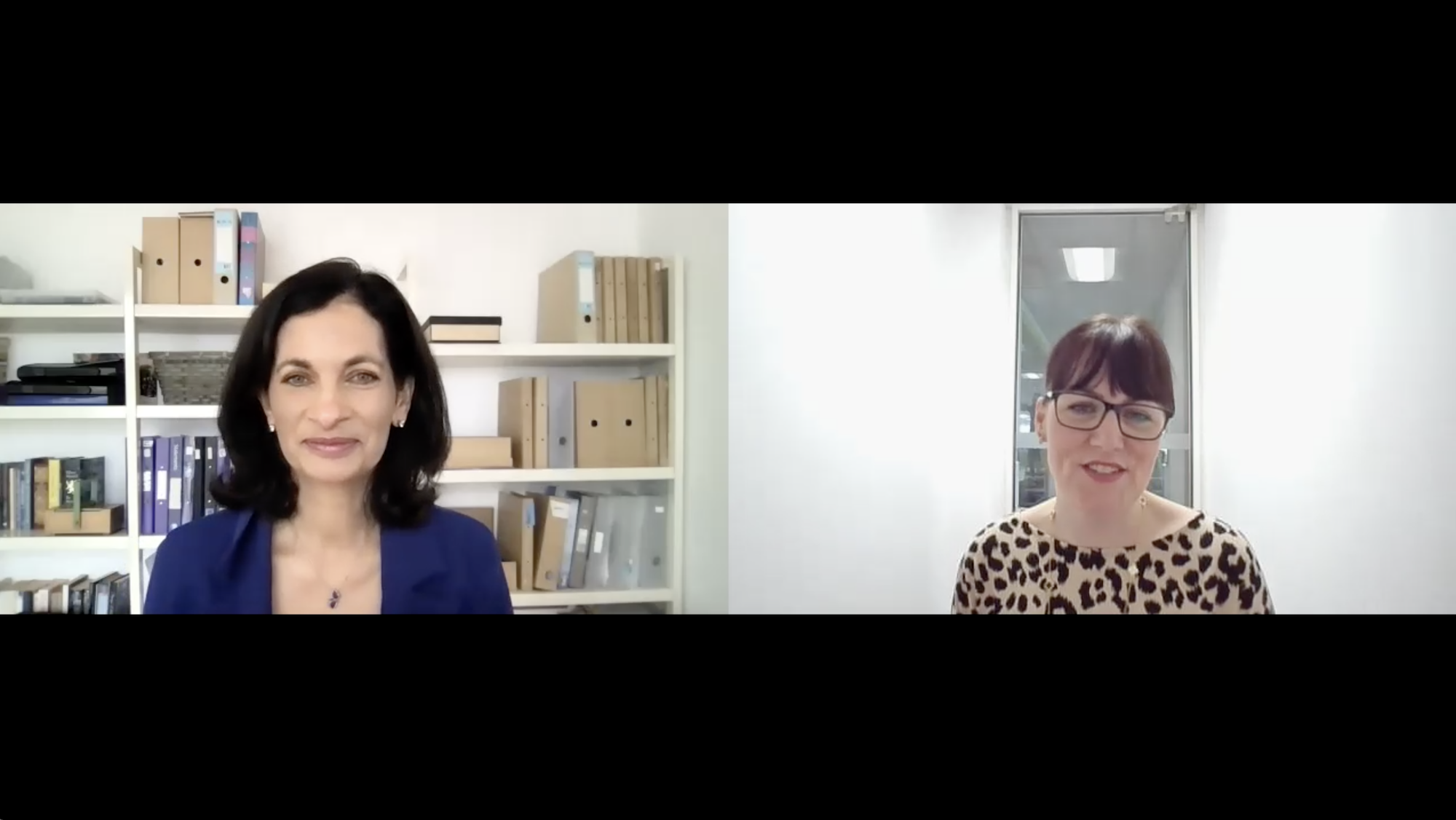As the pandemic continues to accelerate the transition to an all-digital world, it’s also changing the way — and where — we work. Whereas retraining the workforce has typically been regarded as a challenging process, to ensure the resilience and productivity of businesses the urgency to bridge skills gaps is clear.
In the third episode of Resilience Recast, a five-part podcast series from Salesforce in collaboration with Reuters, host Nisha Pillai invited guests to explore how business leaders have helped others rapidly reinvent themselves through new skill sets and, in doing so, create new, impactful opportunities.
Opportunity to bridge existing skills gaps
Opening the discussion, Gavin Patterson, President and Chief Revenue Officer at Salesforce, highlighted that re-skilling the workforce is one of the most important challenges and opportunities we face at this moment.
“There was a digital skills gap before the pandemic. With the importance of digitalisation in rebuilding the economy and society, that gap has got even greater.”
Reskilling, Gavin continued, is not just about giving people technical skills, it’s also about supporting them in changing the way they work and shifting their mindsets of what “work” actually is.
As we move away from the traditional working week of five days in an office, we’re seeing more of a hybrid way of working.
“Out of crisis comes opportunity.”
Establishing and scaling reskilling initiatives
Dr. Johanna Adami, President of Sophiahemmet University in Sweden, shared how thousands of airline employees underwent retraining to support healthcare efforts during the pandemic.
The response, she said, was overwhelming. “We were amazed that when they got the request we had an immediate response from 200-300 people; our first idea had been to do it in a very small group, for about 30 people.”
Resilience Recast host Nisha Pillai and Dr. Johanna Adami, President of Sophiahemmet University
Learning lessons to respond to future crises
500 people took part in a three-and-a-half-day course where they learned basic medical skills and knowledge focusing on infectious disease control, hygiene practices, sterilisation, administration skills for working in a hospital ward or in a private care setting. Communication skills were also crucial.
Following the success of the program, Sophiahemmet University was able to scale up and develop similar initiatives for workers from other industries hard hit by the pandemic, such as hospitality and transportation. Many of the re-trained workers made the decision to permanently remain in the healthcare industry after their experiences.
“I was very happy to see that so many [participants] expressed that they really wanted to have a career in health care instead of their former career. We've seen several of them apply to the nursing program at our university.”
For Dr. Adami, this experience shows that while business leaders might at first be hesitant about their workforce’s ability to change, people are willing to learn new skills when presented with the opportunity. Resilience, she emphasised, has a lot to do with leadership and values; sharing the same goals and values helps build a much stronger, united workforce.
Taking lessons from the pandemic, Dr. Adami added that similar initiatives could be spun up to meet challenges of future disruption or global challenges such as climate change. The university sector, she says, can have a key role to play.
Prioritising objectives and reimagining processes
Supermarket giant, Tesco, faced many challenges at the beginning of the pandemic, not least the surge in demand for items which put pressure on supply chains.
According to Natasha Adams, Tesco’s Chief People Officer the company responded to the public health crisis with a number of core objectives. These included:
Food for all
Safety for everyone
Supporting our colleagues
Supporting our communities
With data, Tesco was also able to forecast the impact of the pandemic on its workforce, such as the number of employees who would have to ‘shield’ at home from the coronavirus.
This helped the company realise it would need up to tens of thousands of new colleagues in order to keep its stores and distribution centres running, particularly to ensure they were able to deliver on their food for all ambition. This required drastic changes to its employment and training processes.
Resilience Recast host Nisha Pillai and Natasha Adams, Chief People Officer, Tesco
Determining what’s ‘nice to have’ and ‘need to have’
As other businesses closed and many peoples’ working situations changed, with the help of technology Tesco was able to mobilise its entire organisation to recruit 50,000 new employees within a matter of weeks.
Through digital and bite-size learning, Natasha explained, Tesco was also able to condense the typical timeframe to equip employees to stay safe and serve customers effectively.
“What technology and a different mindset can allow you to do is actually do jobs you never thought you could.”
The key for Tesco was understanding from an end-to-end perspective what was vital. In making sure that new colleagues were safe, they could maintain customer service levels. They could therefore take out things that Natasha described as ‘nice to have’ and focus on the ‘absolute need to have’.
Sharing sense of purpose
At Tesco, a combination of forward planning, agility, and putting trust in people have all been key elements to building resilience. For Natasha, peoples’ knowledge of their contribution as essential and key workers to supporting communities in need was a great source of motivation.
“I think our colleagues were very proud to be considered essential workers and key workers,” said Natasha. “It was a real recognition of the industry for the vital role we played. And I don’t think we should forget that quickly as we emerge out of the pandemic”.
Listen to the ‘Training the Resilient Workforce’ episode to hear more about how organisations can help others to reinvent themselves through new skill sets and, in doing so, create new, impactful opportunities.









